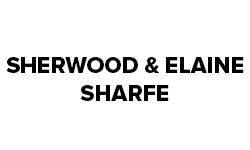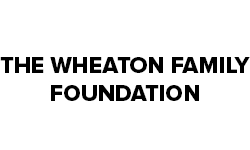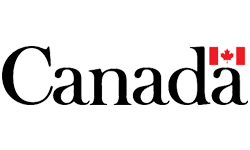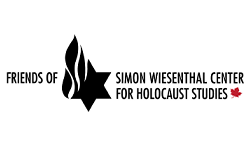GRADE 6 CITIZENSHIP STUDIES ENGAGED CITIZENS
Part A: Curricular Connections and Background
BROAD AREA OF CITIZENSHIP
OVERVIEW AND DESIRED RESULTS OF CITIZENSHIP STUDY
- Understand the concepts of power and authority as it relates to the individual and then move to examine power structures in organizations, locally and globally.
- Examine the distribution of power and authority and the impact on Canada and countries bordering the Atlantic.
- Explore the elements of Canadian citizenship including rights and responsibilities as it applies to the common good, both locally and globally.
- Explore historical and current events as they relate to the areas of study.
- Understand that with the enjoyment of rights come responsibilities.
Grade Six students begin to investigate and understand the meaning of and relationship between authority and power, influence and force. They examine this concept from a personal perspective and then extend their understanding to Canada and countries bordering the Atlantic Ocean. Students examine the characteristics and traits of leadership beginning with the individual and then extend their understandings to the organizational structure of organizations nationally and internationally.
Students are introduced to the concept of “white privilege” and begin to develop opinions regarding the distribution of power and privilege at a global level. They are asked to think about how they contribute to marginalization and consider their responsibility as a Canadian citizen. Students examine the inequities of power and wealth and learn about the ways in which society organizes itself to protect human rights.
Finally students begin to consider their impact on the global community with their daily decisions and use of resources to support their lifestyles.
This area of citizenship focuses on the student using critical thinking skills in order to better understand, the relationship between geography, resources, culture and historical events. Students compare and contrast situations, processes and structures, within Canada and in countries bordering the Atlantic.
ENDURING UNDERSTANDINGS OF CITIZENSHIP STUDY
- History and current events are understood through diverse historical perspectives.
- Canada’s history and processes of democracy includes First Nations, Métis, and Inuit governance and perspectives and have contributed to Canadian identity.
- Democracy requires discussion and consideration of alternate points of view in order to find a balance between individual perspectives.
- Citizens value the needs of the collective common good and consider how their actions impact the collective well-being.
- Engaged citizens strive to be knowledgeable, uphold their rights, and act on their responsibilities.
- Decision-making is a complex process with far-reaching impacts.
- Canadian multi-cultural policies challenge citizenship tenets and require consideration of multiple perspectives.
- Inequities of power and authority can accompany diversity.
- There is variance in the distribution of power and privilege that impacts the ability of some citizens to access citizenship rights.
- A deep understanding of democracy is important to become an engaged citizen.
Students will use information to understand:
- The processes of democracy.
- The roles in a democratic process.
- That the democratic process requires participation.
- That with the enjoyment of rights comes responsibilities.
- That diversity in people also leads to diversity of similar experiences.
Inferences to make:
- The democratic process involves discussion and consideration of alternate points of view in order to find the best solution for the greatest common good. Consequently, everyone has a right to be heard and understood. (i.e. individual perspectives on various issues)
- A strong democratic system enhances the significance of all participants and works toward achieving the greatest common good.
- Enduring understandings are the big ideas that stimulate thinking, guide the inquiry and are linked to outcomes.
- Essential questions point to the “big ideas’ in the inquiry and should be considered and reconsidered as the inquiry progresses.
- Answers to these questions form the evidence of learning at the end of study.
KNOWLEDGE AND SKILL DEVELOPMENT
- question,
- critically examine,
- consider another perspective,
- consider the responsibilities that changing situations evoke/require,
- advocate, and defend rights and responsibilities of a democracy on a local, national, and global level.
ESSENTIAL QUESTIONS
- How does democracy work?
- What is the relationship between multiculturalism and democracy?
- What is the relationship between rights and responsibilities?
- How do my actions influence others? / How do the actions of others influence me?
- How big is my society? How far-reaching is my power and influence?
CURRICULUM OUTCOMES AND INDICATORS
Sask. Curriculum Outcomes / Student Friendly Outcomes
PA6.1
Examine the relationship between an individual’s power and authority and the power and authority of others. / Examine the relationship between power and authority as it relates to individuals and others.
Indicators:
- Illustrate the forms of power (an individual or a group’s ability to influence): force, authority, and influence (voice) with respect to their personal lives (e.g., force: pushing someone, saying something hurtful; authority: being elected class representative, being invited to act or speak on behalf of the group, inviting others to act or speak on behalf of the group; influence: speak out on their behalf or on the behalf of others).
- Give examples of the forms of power (force: gangs, bullying; authority: leadership of an organization; influence: clergy, charisma) in the local community.
- Determine traits common to individuals who are perceived as effective leaders in a variety of contexts in the local, provincial, territorial, national, or international arena.
- Identify and examine the characteristics of local, provincial, national, and international leaders and organizations in order to:
- understand how the individuals and organizations identified obtained their power
- explain how the individuals and organizations identified use influence, force, or authority
- show the relationship between the power and authority of those individuals and organizations, and the power and authority of others
- Describe diverse ways in which groups and societies, especially those groups involving young people, deal with competing claims for power.
- Explain choices young people must make in reconciling the tensions between the dominant social group and individual choice (e.g., drug and alcohol use; social relationships; academic programs, choice of extra-curricular activities, and career interests).
PA6.2
Analyze the distribution of power and privilege.
Indicators:
- Gather and interpret data from various print and electronic sources, such as graphs, maps, and charts, to illustrate geographic and economic differences among regions in Canada and a selection of countries bordering the Atlantic Ocean (e.g., mountainous areas: tourism, forestry, and mining; coastal areas: fishing and shipping).
- Suggest reasons for any economic differences among the regions in Canada and a selection of countries bordering the Atlantic Ocean, and speculate on the effects of those differences.
- Investigate the concept of white privilege, and assess the degree to which it exists within Canada and a selection of countries bordering the Atlantic Ocean.
- Identify the personal and societal impact of white privilege on individuals and groups within Canada and a selection of countries bordering the Atlantic Ocean.
IN6.3
Develop an understanding that global interdependence impacts individual daily life. / Understand that we live in a global community and are interdependent on one another.
Indicators:
- Create an inventory of ways in which daily life is influenced by global interdependence.
- Assess and interpret why people from a selection of countries have chosen, or may choose, to immigrate to Canada.
- Create a multimedia presentation representing the impact of immigration on the worldviews of people (especially youth) in Canada, both indigenous citizens and immigrants.
- Become aware and describe the role of key international agencies in protecting human welfare, especially that of children and youth (e.g., United Nations, UNICEF, UNESCO, Amnesty International, Médecins sans frontières, United Nations High Commission for Refugees, international indigenous organizations, faith-based international development organizations).
- Investigate and represent the contribution of a Canadian individual or organization toward enhancing human welfare in Canada.
- Investigate and represent the contribution of an individual not born in Canada toward enhancing human welfare in Canada (e.g., neighbours, community members).
- Investigate the contribution of an Indigenous Canadian toward enhancing human welfare in Canada.
TEACHER BACKGROUND
- Power and Privilege – Understanding differences
- Canada’s policy on Multi-culturalism
- Canada’s policy on Human Rights
© 2023 Concentus Citizenship Education Foundation Inc. All Rights Reserved.









